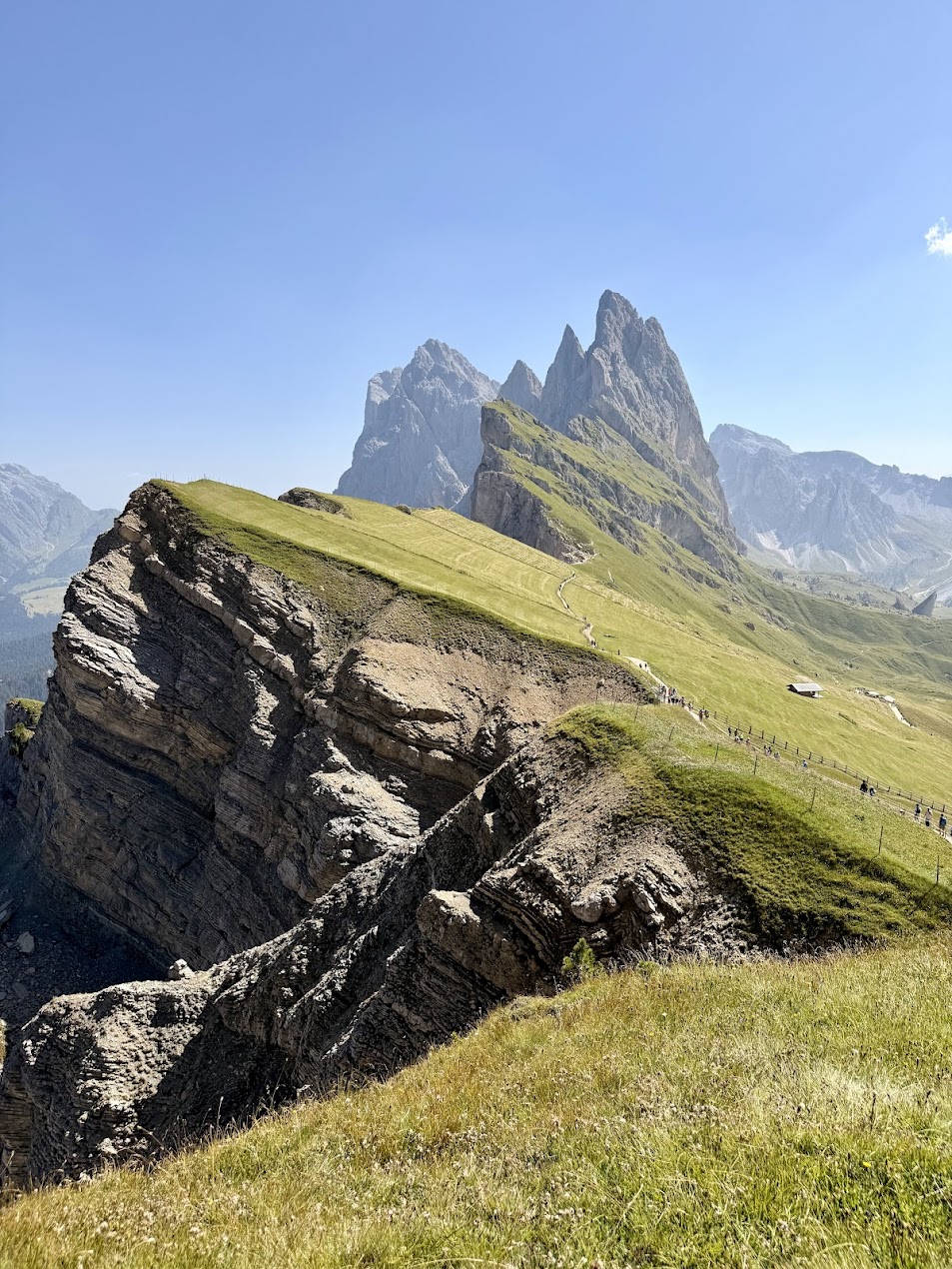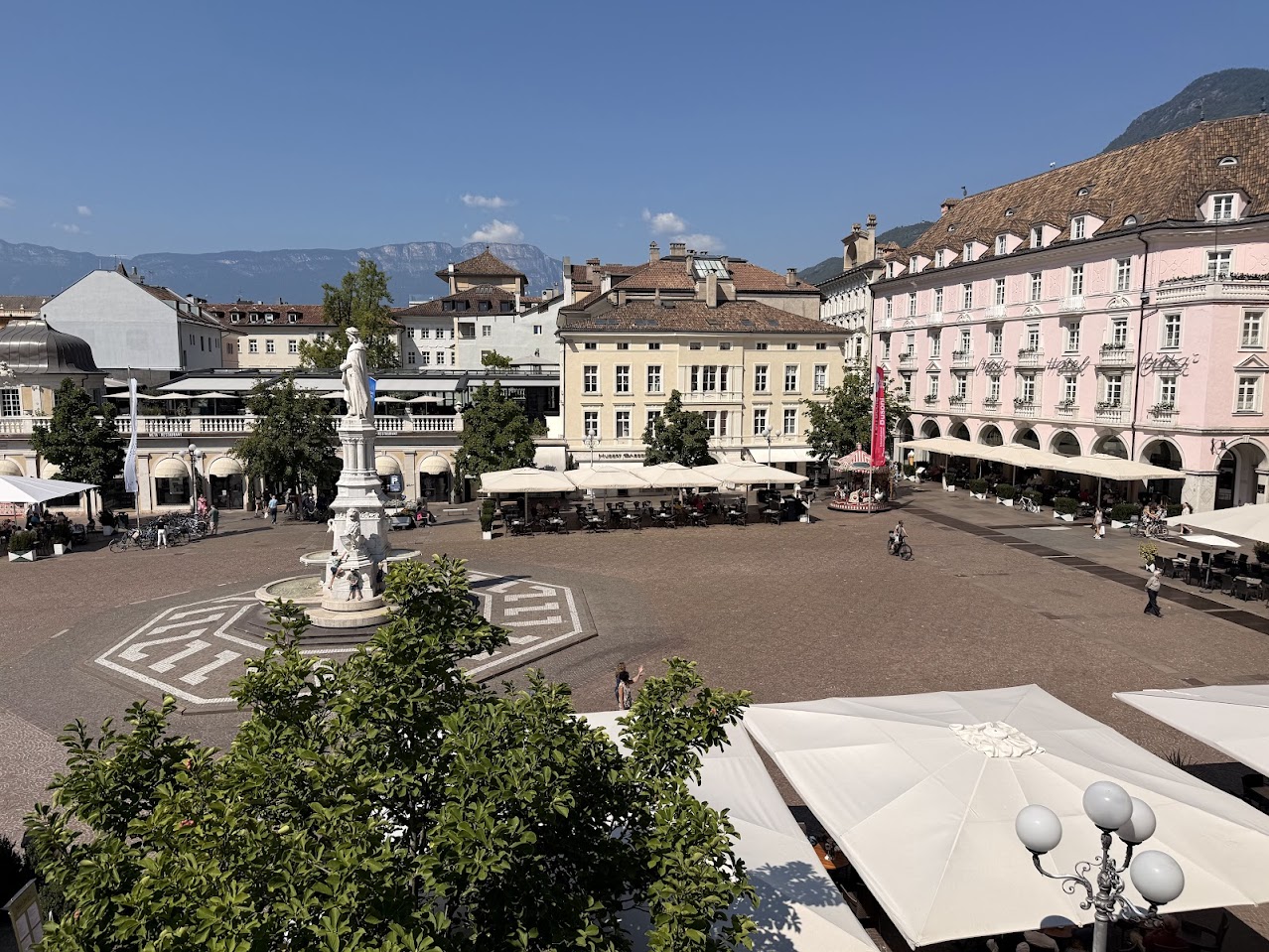How I Use Claude Projects to Plan Family Vacations: A Guide to AI-Powered Travel Planning

I spend my days thinking about content creation, knowledge management, and process optimization. When it came to planning family vacations, I discovered that Claude Projects has revolutionized how I approach travel planning—turning what used to be a stressful, scattered process into an organized, learning system that gets better with every trip.
The Problem: Traditional Travel Planning is Broken
Before discovering Claude Projects, my family vacation planning looked like this: dozens of browser tabs, scattered notes across multiple apps, forgotten lessons from previous trips, and the inevitable last-minute scramble to figure out logistics.
My wife, 9-year-old daughter, and I love authentic cultural experiences, great food, and outdoor adventures. But the real challenge came when my in-laws wanted to join us for a trip to Italy’s Dolomites. Suddenly I wasn’t just planning for active travelers who could walk miles and adapt on the fly—I needed to balance our family’s love for exploration with the reality that grandparents in their 70s can’t (and shouldn’t have to) keep up with our usual pace.
Claude Projects: My Personal Travel Intelligence System
Claude Projects gives me a persistent, intelligent workspace that learns from each trip and gets smarter over time. Here’s how I’ve built my family travel planning system:
1. Creating My Travel Planning “Constitution”
The first breakthrough was developing a set of Family Travel Planning Instructions that capture our hard-won lessons. After analyzing our Colombia and Italy trips, I documented what actually works for our family:
Core Principles:
- Transportation flexibility over rigid schedules (learned the hard way in Colombia)
- Central accommodations in walkable areas
- Quality over quantity - fewer moves, better properties
- Balance planned experiences with spontaneous discovery
- Plan for different energy levels throughout the day
What We’ve Learned:
- Summer heat management is crucial for family comfort
- Early morning starts are essential for popular attractions
- Car rentals provide door-to-door flexibility that trains simply can’t match
- Authentic local experiences beat generic tourist activities every time
This “constitution” now guides every trip we plan, ensuring we don’t repeat past mistakes.
2. Building Trip-Specific Intelligence
Each destination gets its own detailed planning session within the project. For our Italy trip, Claude helped me:
- Analyze seasonal challenges: Understanding that August in the Dolomites meant extreme heat and crowds
- Optimize logistics: Working through complex train vs. car rental decisions
- Balance family needs: Finding activities that work for a 9-year-old while satisfying adult interests
- Plan cycling integration: Figuring out how to include epic Alpine rides without sacrificing family time
The AI doesn’t just follow templates—it actively reasons through trade-offs. When I proposed the Grossglockner cycling route, Claude identified potential issues with timing, logistics, and family impact, then suggested solutions.
3. Learning from Every Experience
Here’s where Claude Projects truly shines: continuous learning. After our Italy trip, I fed all our experiences back into the system:
What worked brilliantly:
- Hotel Greif’s central Bolzano location (walkable to restaurants and activities)
- Car rental flexibility (could change plans based on weather/crowds)
- Spontaneous cultural discoveries (the Tux heritage festival became a trip highlight)
What we’d change:
- August timing created unnecessary heat stress
- Overly ambitious plans competed with family time
- Complex train logistics added stress without benefit
This post-trip analysis becomes part of our permanent knowledge base, informing every future trip.
4. Multi-Trip Coordination
Claude Projects excels at managing multiple potential trips simultaneously. Currently, I’m exploring several Spring 2026 options:
- Guatemala - Central America’s Cultural Gem: my wife’s Latin America love + incredible culture
- Costa Rica beach adventure: Multi-generational relaxation
- Ljubljana, Slovenia: Europe’s best-kept secret
The AI helps compare logistics, timing, and family fit across all options, drawing from our documented preferences and past experiences.
Real Examples: Claude in Action
The Dolomites Multi-Generational Challenge
When my in-laws expressed interest in joining our August 2025 Italy trip, I faced the ultimate travel planning challenge: how do you combine Alpine touring with senior-friendly exploration and keep a 9-year-old engaged?
Traditional planning would have been a nightmare: Scouring dozens of websites for senior-accessible hotels and trying to figure out which cable cars have elevators.
With Claude Projects, it became manageable:

Claude analyzed our multi-generational needs and identified Hotel Greif in Bolzano as the perfect base. Why? It’s located right on Walther Square in the historic center—walkable for seniors, safe for kids to explore, and positioned perfectly for my cycling departures. The AI understood that a central location would eliminate transportation stress for grandparents while maximizing authentic experiences for our family.
This wasn’t just logistics, it was understanding family dynamics.
Scenario Planning
When I asked about Munich vs. other Alpine destinations, Claude immediately identified key considerations based on our family profile:
- Flight logistics from RDU
- Balance between my cycling interests and family activities
- Lessons learned from our Italy heat/crowd challenges
- Transportation strategies that align with our preferences
Detailed Itinerary Optimization
For our planning, Claude caught issues I’d missed:
- August 15th is a holiday (expect massive crowds and closures)
- Departure day timing was too tight for summer traffic
- Alternative activities required for different family energy levels
Learning from the Dolomites Success
Our August Dolomites trip became a perfect case study for multi-generational travel done right. Hotel Greif exceeded expectations; my in-laws loved having Walther Square right outside their window, while our room gave our family the space we needed after long Alpine days.
The real magic happened in moments Claude couldn’t have predicted but our planning made possible: discovering a spontaneous heritage festival in Tux, watching my father-in-law connect with his Austrian roots, seeing my daughter confidently navigate the Bolzano markets while her grandparents relaxed nearby.
Claude’s post-trip analysis helped us understand what worked:
-
Single base strategy: Seven nights in one location was perfect for seniors, preventing constant packing stress
-
Central accommodation: Hotel Greif’s location meant everything was walkable—restaurants, shops, cable cars, cultural sites
-
Flexible daily structure: Mornings together, afternoons that could split based on energy levels, evening reunions
-
Car rental flexibility: Could adapt to weather, crowds, or changing needs without being locked into rigid train schedules
-
What we’d change: August timing created unnecessary heat stress and crowds. Our next Alpine adventure will target shoulder season for better weather and accessibility.
This analysis immediately informed our family travel guidelines, preventing us from repeating the seasonal timing mistake.
The Payoff: Better Trips, Less Stress
Using Claude Projects for travel planning has delivered measurable results:
Enhanced Trip Quality:
- Multi-generational experiences that work for everyone (like finding that Austrian heritage festival)
- Better logistics that handle different mobility levels and energy requirements
- Accommodations that provide both family togetherness and personal space when needed
Reduced Planning Stress:
- Single, comprehensive workspace instead of scattered browser tabs and apps
- Clear frameworks for multi-generational decision-making
- Confidence from learning from (not repeating) past successes and mistakes
Improved Family Satisfaction:
- Activities that genuinely engage grandparents, parents, and kids simultaneously
- Accommodations where everyone feels comfortable and respected
- Transportation strategies that don’t exhaust anyone before the fun begins
Tips for Using Claude Projects for Travel Planning
Start with Your Family’s “Constitution”
Document what actually works for your family:
- Accommodation preferences (central vs. resort, pool requirements, etc.)
- Transportation comfort levels (driving vs. public transit)
- Activity balance (adventure vs. relaxation, planned vs. spontaneous)
- Timing preferences (early birds vs. night owls)
Feed in Real Experiences
After each trip, conduct a thorough debrief:
- What exceeded expectations?
- What would you change?
- Which logistics worked smoothly?
- What family dynamics emerged?
This creates a feedback loop that improves every future trip.
Use Scenario Planning
For major decisions, ask Claude to compare options:
- Multiple destinations for the same dates
- Different timing for the same destination
- Various activity balances (relaxation vs. adventure)
Leverage Cross-Trip Learning
Ask Claude to apply lessons from previous trips to new destinations:
- “Given our Colombia experiences, how should we approach transportation in Morocco?”
- “Based on our Italy August challenges, what timing would work better for Japan?”
The Future of Family Travel Planning
Claude Projects has transformed travel planning from a necessary evil into an intelligent, evolving system. Each trip builds on the last, creating personalized travel intelligence that understands our family better than any generic travel site ever could—whether it’s just the three of us or includes grandparents who need different considerations.
The Dolomites trip proved that with the right planning, you can combine personal adventures with meaningful multi-generational bonding (like watching your father-in-law discover his heritage) and age-appropriate fun for kids (like confidently exploring Italian markets).
Whether we’re cycling Alpine passes, discovering spontaneous cultural festivals, or just finding the perfect gelato shop that has comfortable seating for grandparents, we’re traveling smarter because we’re learning smarter. With Claude Projects my family’s travel intelligence gets smarter with every trip.
Want to start your own family travel planning project? Begin by documenting your last trip—what worked, what didn’t, and what you’d change. That’s the foundation for every great adventure that follows.